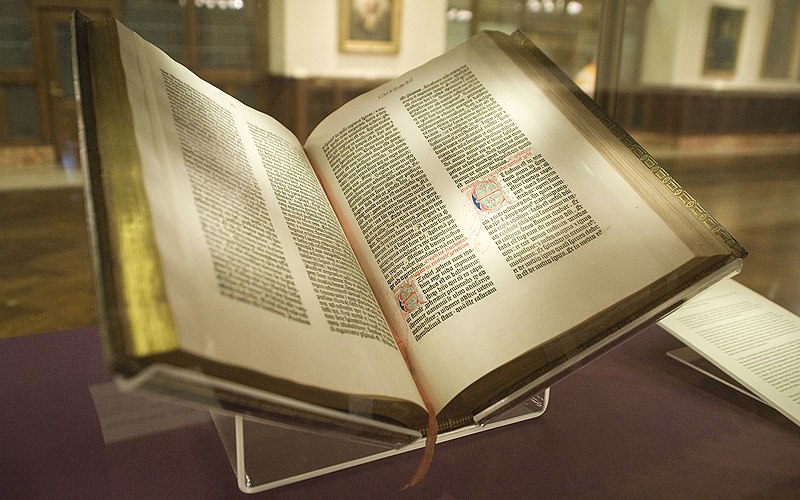Is it better for the wide public to have access to knowledge, even if it might inhibit the learning of the wealthy? We now see the printing press as an invention that was pivotal to humanity's progression. It allowed people from all classes and trades to obtain information for themselves for which they previously would have had to rely on an academic or a church leader. However, many of those who already had access to that knowledge thought the printing press was a terrible idea. One argument, noted in The Renaissance in Perspective, was that it "would impair learning by lowering it to the level of the multitude." Others scoffed at how unattractive printed books were compared to the traditional copied ones.
 |
| The upper class of the renaissance were hesitant to accept the printing press for fear that common people would impair their learning. |
The printing press succeeded in expanding knowledge to the masses, but whether or not it tainted learning is not so certain. Regardless, I don't believe those who wanted to keep knowledge exclusive to the high classes were in the right. Societies and individuals thrive when knowledge is shared; that is worth the possibility that learning overall might be slower or less perfectly articulated.
I think we see a similar problem in schooling now. The American government provides schooling for free so everyone in the country can be educated. It allows for a wide spread of knowledge, which as we saw with the printing press, benefits society. However, not everyone goes to public schools; those who can afford it go to private schools. This hurts public schools because they receive funding based on how many students they have.
I see a problem of exclusivity here, similar to that with the printing press. Public schools educate children from all backgrounds, so students may receive more generalized education than if they went to a school exclusive to the wealthy. When this decreases the funding and therefore the quality of public schools, though, it becomes a problem of exclusivity. Of course this problem is more complicated than I can get into here, but we should look at the big picture: society benefits more overall when knowledge is shared among the classes than when elites have exclusive access.
Image credit: "The Gutenberg Bible" by Kevin Eng is licensed under CC BY-SA 2.0

You're absolutely right that the problem is quality- I think the real problem here though is the necessary evil of money being involved in the equation. In order to mass produce books, they couldn't be as high of quality. In order to supply the masses with equal opportunities for education, it could no longer be the individualized learning experience. It wouldn't be financially viable. Perhaps having the rich people in public schools would help, but as long as schools have to turn a profit to keep the doors open, that's not going to happen.
ReplyDeleteYou bring up a great subject worth debating. I would not consider myself an expert, but I think that with the technology we have now, it is not necessary to have the number of teachers that are employed. STEM teaching methods have been developing rapidly online in quality and quantity. I think that money has driven people to make education more accessible for the most part. I wouldn't be surprised if it will be more common for our children's generation to graduate from an online university than a physical one. More and more online Universities are becoming accredited each year.
ReplyDeleteI'm glad you brought this up. I feel like public education can definitely suffer in quality at times. When I was serving my mission in Idaho, so many parents chose to homeschool their children instead of having them go through public school because the school system was very poor quality. Homeschooling is definitely another factor that plays into this in a few ways that may be worth exploring.
ReplyDeleteI agree that this is definitely an issue of quality. I experienced public schools in two very opposite parts of the country, but one of the two schools had much more funding. And I bet you can guess it, the education was ten times better. Where there is greater funding, there is going to be greater quality.
ReplyDelete